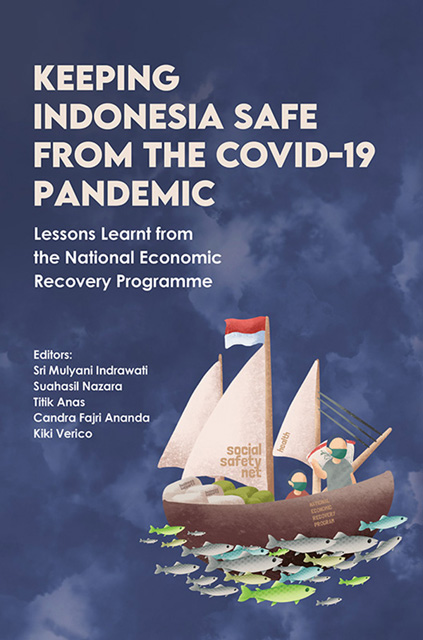 Keeping Indonesia Safe from the COVID-19 Pandemic
Keeping Indonesia Safe from the COVID-19 Pandemic Published online by Cambridge University Press: 30 June 2023
INTRODUCTION
Tax reform has been a major challenge for Indonesia which has struggled for many decades to strengthen its capacity to collect taxation revenue. The adverse impact of reduced taxation revenue has adversely impacted the Indonesian government's ability to finance needed social services. This is evident in the tax-to-GDP ratio in Indonesia when compared to similar income group countries. As a result, tax reform has been a continuing challenge for the government, including strengthening revenue collection capabilities.
Most recently, the Ministry of Finance (MoF) initiated tax reforms in 2017 which were a comprehensive revamp of Indonesia's current tax policy and administration landscape. Initially, the government expected to finalize the reform agenda by 2024 with the roll-out of the new core tax system. However, the pandemic hit midway through the reform and, expectedly, shifted the focus of the tax authorities to respond to the COVID-19 disruption.
The unprecedented and extraordinary challenges of the pandemic created a health and economic catastrophe on a global scale. For the government, the immediate priority was to minimize the risk of a health crisis. Nevertheless, the attempts to curb the pandemic through containment and outbreak preventative measures triggered both supply and demand shocks and created social and economic challenges. The government faced the additional challenge of cushioning and protecting impacted households and businesses.
From the perspective of an economic crisis, the COVID-19 challenge was (at a minimum) twofold: the government needed to address the immediate crisis and also provide necessary support during the post-pandemic recovery phase. As a result, the government devised a comprehensive support package through discretionary fiscal responses: additional spending and forgone revenue—to supplement and strengthen the existing automatic stabilizers. The government structured and consolidated the broad economic recovery agenda under the National Economic Recovery (Pemulihan Ekonomi Nasional, or PEN) Programme.
As one of the available fiscal instruments, the role of tax is to raise revenue to fund the services and income supports the community's needs and is not only about collecting revenue. The government has provided a set of fiscal incentives to support the economy and has been reporting tax expenditures since 2018.
To save this book to your Kindle, first ensure [email protected] is added to your Approved Personal Document E-mail List under your Personal Document Settings on the Manage Your Content and Devices page of your Amazon account. Then enter the ‘name’ part of your Kindle email address below. Find out more about saving to your Kindle.
Note you can select to save to either the @free.kindle.com or @kindle.com variations. ‘@free.kindle.com’ emails are free but can only be saved to your device when it is connected to wi-fi. ‘@kindle.com’ emails can be delivered even when you are not connected to wi-fi, but note that service fees apply.
Find out more about the Kindle Personal Document Service.
To save content items to your account, please confirm that you agree to abide by our usage policies. If this is the first time you use this feature, you will be asked to authorise Cambridge Core to connect with your account. Find out more about saving content to Dropbox.
To save content items to your account, please confirm that you agree to abide by our usage policies. If this is the first time you use this feature, you will be asked to authorise Cambridge Core to connect with your account. Find out more about saving content to Google Drive.